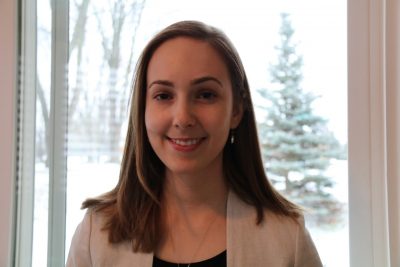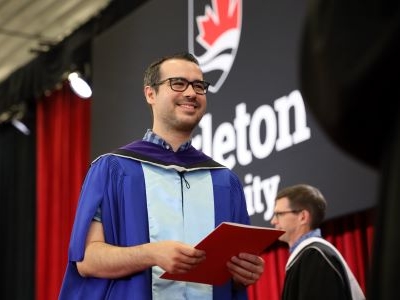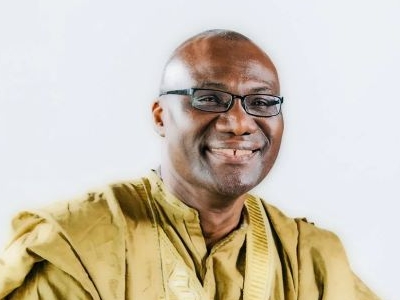–The following story was written by Taia Goguen-Garner
Being called an inspiration tends to be a very flattering compliment, but what if someone was calling you an inspiration for something as simple as going to the grocery store? For many people with disabilities, including Leah Cameron, this is a reality.

Cameron, a Masters student in Carleton’s Communication program, is looking at this concept of painting people with disabilities in an inspirational light, specifically in the media.
The media often portrays people with disabilities as an inspiration, creating what Cameron refers to as “inspiration porn.” This is the practice of calling someone an inspiration for simply doing mundane activities, just because they have a disability.
“The idea that inspiration porn objectifies disabled people for the benefit of non-disabled people is that sometimes, when a disabled person sees a quote on social media, for example, that says, ‘The only disability in life is a bad attitude,’ accompanied by an individual in a wheelchair playing basketball, it is often made to make non-disabled people feel better about their own lives,” explained Cameron. “It’s to show them that their struggles are not as bad as having a disability, and if someone with a disability can play basketball, then they can as well. For someone with a disability, it may have this effect too, but it can also make them feel like their disability is simply a mindset, which isn’t true. There are real barriers in society for someone with a disability, such as discrimination and lack of accommodation.”
Cameron emphasizes that it is not wrong to refer to someone with a disability as an inspiration. Her research simply looks at why we do this.
“I was interested in this topic because I am a leg amputee and have often felt uncomfortable with people calling me inspirational for doing something as simple as grocery shopping. On the one hand, it can feel good to ‘inspire’ someone, but it often leaves me with a negative feeling because the assumption is someone with a disability is less capable than someone without a disability. Because of my personal experiences, I wanted to explore this topic further.”
Cameron is using focus groups as a means of data collection, and she is analyzing both non-disabled and disabled participants by showing them an infomercial on disabled athletes.
“I found that the non-disabled students were impressed by the disabled athletes in the infomercial not because they had a disability but because they were showing great athleticism. The disabled participants were quite critical of the infomercial and felt that it was objectifying disabled people for the benefit of non-disabled people,” explained Cameron.
Cameron’s research highlights the importance of language in terms of what we use to describe people, whether through the media or everyday speech. It also sheds light on the complexity of how disability is understood and portrayed.
Dr. Irena Knezevic and Dr. Roy Hanes have been supervising Cameron throughout her research.
“They provided such important guidance and feedback, and really made me think deeply about this topic. They provided encouragement every step of the way, and they truly went above and beyond to make themselves available. We all made a great team and I feel really lucky to have learned and worked with them.”
Cameron hopes to bring her research to communication and disability conferences, and she also hopes to have her research published one day.
For more information about the master’s degree in Communication, click here.
Friday, April 5, 2019 in Grad Student Research, News
Share: Twitter, Facebook





